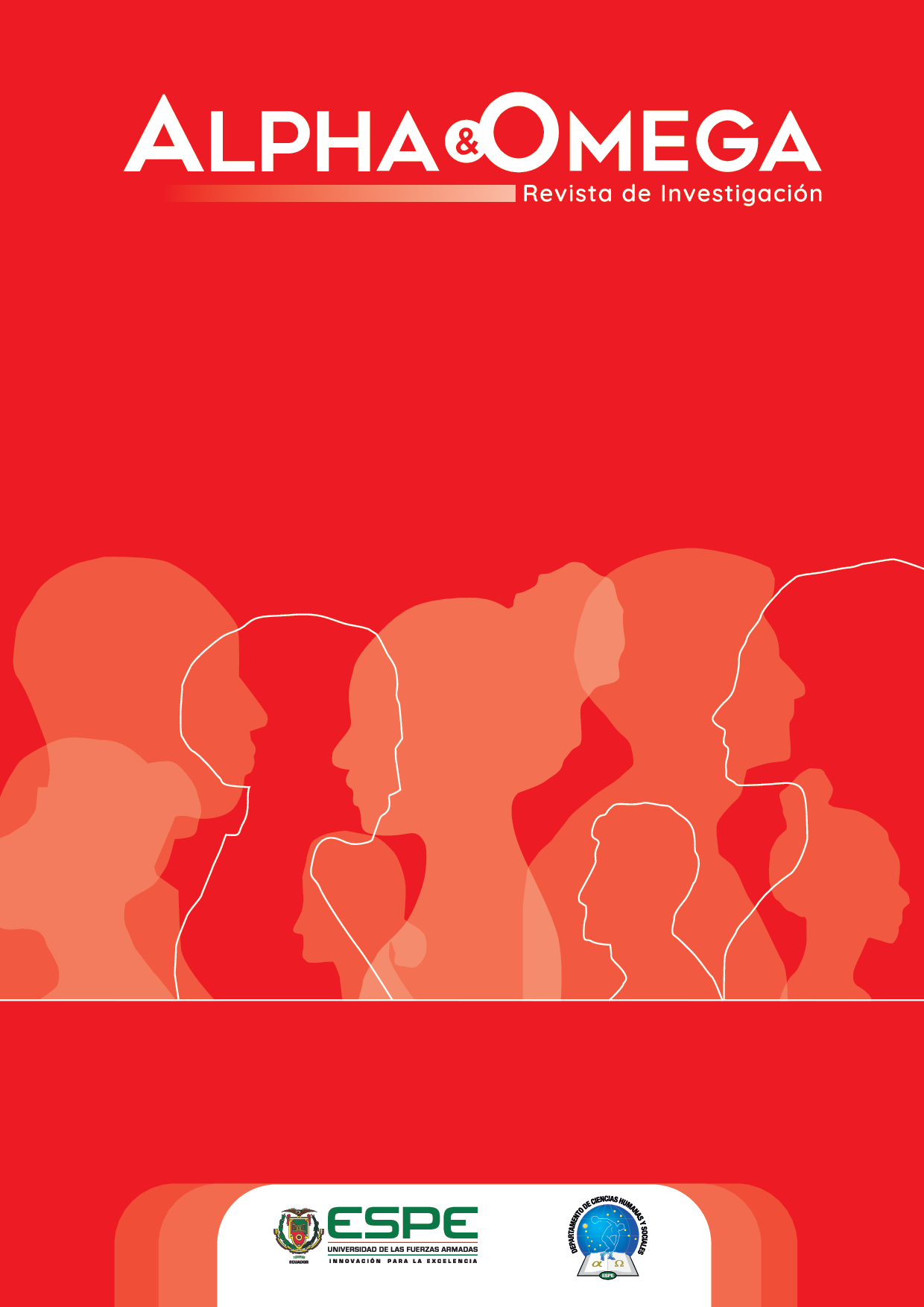The impact of AI in the Teaching-Learning Process of Higher Education Students of the Online Modality Education Careers
Main Article Content
Abstract
The present research covers the impact of artificial intelligence (AI) on the teaching-learning process of higher education students in online education programs: Early Childhood Education, Basic Education, and Pedagogy of National and Foreign Languages. The main objective is to understand the students' perception of AI and its potential to improve educational experiences. A non-experimental, cross-sectional or survey study was developed with a quantitative and descriptive approach. The survey was applied through Google Forms to 53 students randomly from 17 to 36 years old, 13 questions about their familiarity with the use and implementation of AI in higher education, autonomous learning, and so on, were asked. In the results, it could be evidenced that students are familiar with the use of this tool in education and believe that personalized learning experiences can improve their motivation, and support students with diverse needs. In addition, the need to address cautions about possible risks of AI, such as the lack of AI literacy and the digital divide that exists in higher education, should be highlighted.
Downloads
Article Details

This work is licensed under a Creative Commons Attribution-ShareAlike 4.0 International License.
How to Cite
References
Camargo Cuéllar, M., & Marion Montoya, M. Percepción de los docentes sobre la implementación del constructivismo en la práctica pedagógica. https://repositorio.pucp.edu.pe/index/handle/123456789/199304
Fajardo, G., Ayala, D., Arroba, E., & Lopez, M. (2022). Inteligencia Artificial y la Educación Universitaria: Una revision sistematica. Magazine de las Ciencias, 109-131. Obtenido de https://revistas.utb.edu.ec/index.php/magazine/article/download/2935/2589/10203
Fondo Monetario Internacional (2023) Promesas y Riesgos de la Inteligencia Artificial. https://www.imf.org/es/Publications/fandd/issues/2023/12/B2B-Artificial-Intelligence-promise-peril-Tourpe
Granda, M., Muncha Cofre, I. J., Guamanquispe Rosero, F. V., & Jácome Noroña, J. H. (2024). Inteligencia Artificial: Ventajas y desventajas de su uso en el proceso de enseñanza aprendizaje. MENTOR Revista De investigación Educativa Y Deportiva, 3 (7), 202-224. Obtenido de https://revistamentor.ec/index.php/mentor/article/view/7081
Hewlett Packard. (2024). Inteligencia Artificial. Obtenido de Que es la inteligencia artificial?: https://www.hpe.com/lamerica/es/what-is/artificial-intelligence.html
Lainjo, B., & Tmouche, H. (2023). Impact of Artificial Intelligence On Higher Learning Institutions. International Journal of Education Teaching and Social Sciences, 3 (2), 96-113. doi:10.47747/ijets.v3i2.1028 https://www.researchgate.net/publication/369880212_Impact_of_Artificial_Intelligence_On_Higher_Learning_Institutions
Meneses, Nacho. (2023). ChatGPT y educación: ¿un nuevo enemigo o aliado de los profesores? El País. https://elpais.com/economia/formacion/2023-03-30/chatgpt-y-educacion-un-nuevo-enemigo-o-aliado-de-los-profesores.html
Nwadinachi, S., & Tsetskov, V. (2022). Artificial Intelligence in Higher Education: Challenges and Opportunities. BORDER CROSSING, 12, 1-15. doi:10.33182/bc.v12i1.2015
Ocaña-Fernández, Y., Valenzuela-Fernández, L., & Garro-Aburto, L. (2019). Inteligencia artificial y sus implicaciones en la educación superior. Propósitos y Representaciones. http://dx.doi.org/10.20511/pyr2019.v7n2.274
Payer, M. (2005). Teoría del constructivismo social de Lev Vygotsky en comparación con la teoría Jean Piaget. Caracas, Venezuela: Universidad Central de Venezuela. https://proglocode.unam.mx/system/files/TEORIA%20DEL%20CONSTRUCTIVISMO%20SOCIAL%20DE%20LEV%20VYGOTSKY%20EN%20COMPARACI%C3%93N%20CON%20LA%20TEORIA%20JEAN%20PIAGET.pdf
Pedraza, Jarod David. (2023). La inteligencia Artificial en la sociedad: Explorando su Impacto Actual y los Desafíos Futuros. Escuela técnica Superior de Ingenieros Informáticos. Universidad de Madrid. https://oa.upm.es/75068/1/TFG_JAROD_DAVID_PEDRAZA_CARO.pdf
Pilay, M. A., Castro, M. I., Raul, M. Q., & & Morocho, E. K. (2023). Constructivismo e Inteligencia Artificial, un Reto en la
Ensenanza Aprendizaje Universitaria. Serie Cientifica de la Universidad de Ciencias Informaticas, 124-139. https://publicaciones.uci.cu/index.php/serie/article/view/1322
Saenz, I. Z. (2017). Constructivismo y realismo critico en los conflictos ambientales. Acta sociologica, 273-294. https://www.sciencedirect.com/science/article/pii/S0186602817300579
Slimi, Z. (2023). The Impact of Artificial Intelligence on Higher Education: An Empirical Study. Computer and Engineering. doi:10.19044/ejes.v10no1a17 https://files.eric.ed.gov/fulltext/EJ1384682.pdf
Zhang, K., & Begum, A. (2021). AI technologies for education: Recent research & future directions. Computers and Education: Artificial Intelligence, 2. doi:https://doi.org/10.1016/j.caeai.2021.100025 https://www.sciencedirect.com/science/article/pii/S2666920X21000199

